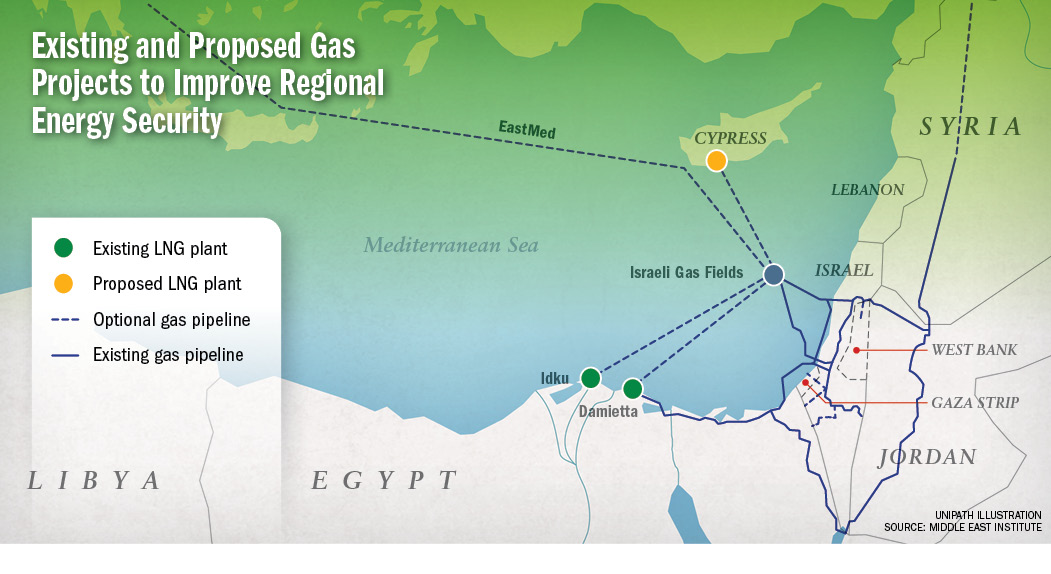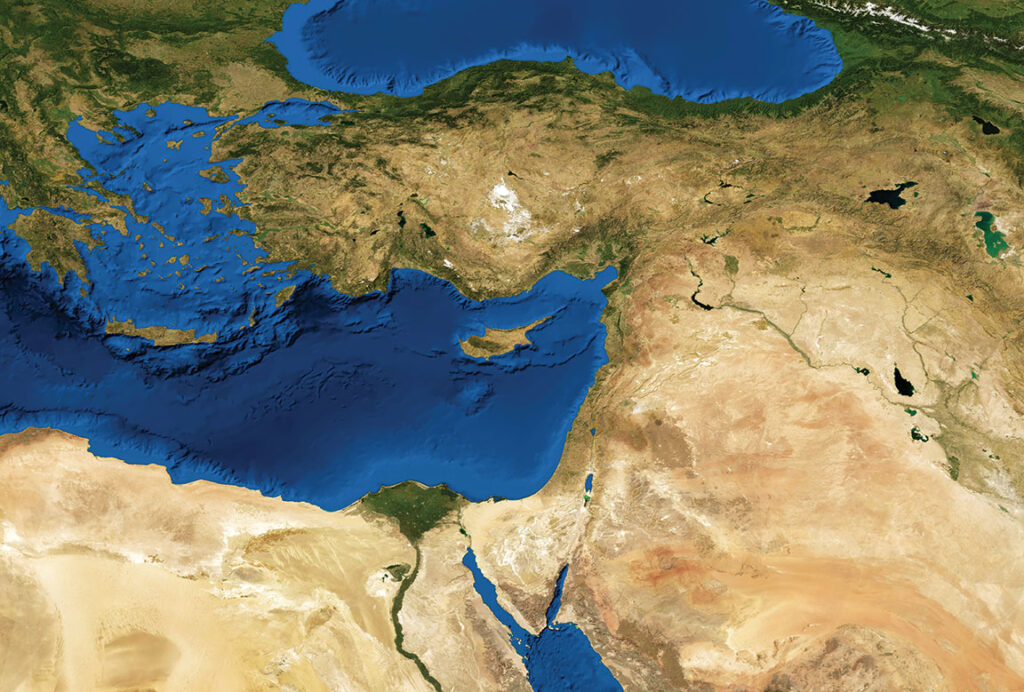OSAMA MOBAREZ, SECRETARY-GENERAL, EAST MEDITERRANEAN GAS FORUM
Forthe past four years, the world has witnessed consecutive challenges and crises, starting with the COVID pandemic and then the Russia-Ukraine war, climate change, and also the Israeli-Hamas conflict and a very divided and polarized world.
All these challenges have been sweeping the world, changing the norms and the way we do business. Energy has been at the forefront of all these crises, and we face an energy “trilemma” of energy security, energy sustainability and energy affordability.
I believe the key to facing these challenges is collaboration, an example of which is the organization I belong to, the East Mediterranean Gas Forum (EMGF).
The EMGF was formed four years ago to address the prospect of significant gas reserves in the Eastern Mediterranean. A lot of these reserves remain undeveloped and nonproductive. Potentially larger reserves remain undiscovered.
The idea behind EMGF is how to bring together stakeholders from governments, industry and finance to overcome the challenges of developing these resources. The EMGF has eight members: Cyprus, Egypt, France, Greece, Israel, Italy, Jordan and the Palestinian Authority. The three observers are the European Union, the United States and the World Bank.
One thing that distinguishes the EMGF is that it is not just about governments. We also maintain what we call the Gas Industry Advisory Committee, which has about 38 member companies from national and multinational oil companies, financial institutions and technology companies. By bringing these stakeholders together, we promote profitable collaboration.
Our long-term strategy has seven strategic objectives, and we are working on three main pillars. One is regional integration: How can we create synergies between the different gas fields and infrastructure and integrate the economies of the region? The second pillar focuses on climate change. The third pillar is about positioning the EMGF as a low-carbon, low-cost gas supplier while engaging the private sector.
 Regarding regional integration and energy security, the East Mediterranean was able to increase its gas supplies to Europe by over 30% after the start of the Russia-Ukraine war. Eastern Mediterranean gas resources might be limited compared to those of the Arabian Gulf, but for Europe, and especially for southern and eastern Europe, they represent a source of diversification for energy supplies.
Regarding regional integration and energy security, the East Mediterranean was able to increase its gas supplies to Europe by over 30% after the start of the Russia-Ukraine war. Eastern Mediterranean gas resources might be limited compared to those of the Arabian Gulf, but for Europe, and especially for southern and eastern Europe, they represent a source of diversification for energy supplies.
We are also trying to strike a balance between energy security and the energy transition. Both challenges are significant. Severe weather across the world highlights the climate challenge, but at the same time, energy security is also important. Without such security, lives and livelihoods are threatened. Although some people think that energy security is short term and energy transition is long term, both are short- and long-term issues.
In 2022, we launched the decarbonization initiative of the Eastern Mediterranean. The goal is to reduce emissions from the gas industry in the region. We managed to launch this during the United Nations Climate Change Conference held in Egypt in 2022.
The plan involves setting an emissions baseline for the gas industry and explores efforts to reduce emissions. We outlined decarbonization projects and promoted policies and regulations to encourage investment in these projects. We also identified the main roles for the EMGF: harmonization of policies, technology aggregation, financial support and mutual carbon certification.
Our initial focus is harmonization of policies and regulations to drive further decarbonization and establishing a mechanism for carbon-intensity certification for the region that the EMGF would adopt and enforce. We presented this at the 2023 United Nations Climate Change Conference in Dubai.
Although it might be a bit challenging to talk about collaboration, especially in the face of regional crises, we need to think beyond current events. We need to think beyond the short term and think more about the long term, what we can do to enhance collaboration, what we can do to diversify energy.
We must do this responsibly, producing low-cost energy with minimal carbon emissions, taking into consideration not just the climate challenge but also energy security.
Osama Mobarez, an Egyptian, was chosen as first secretary-general of the Cairo-based East Mediterranean Gas Forum in 2021.

